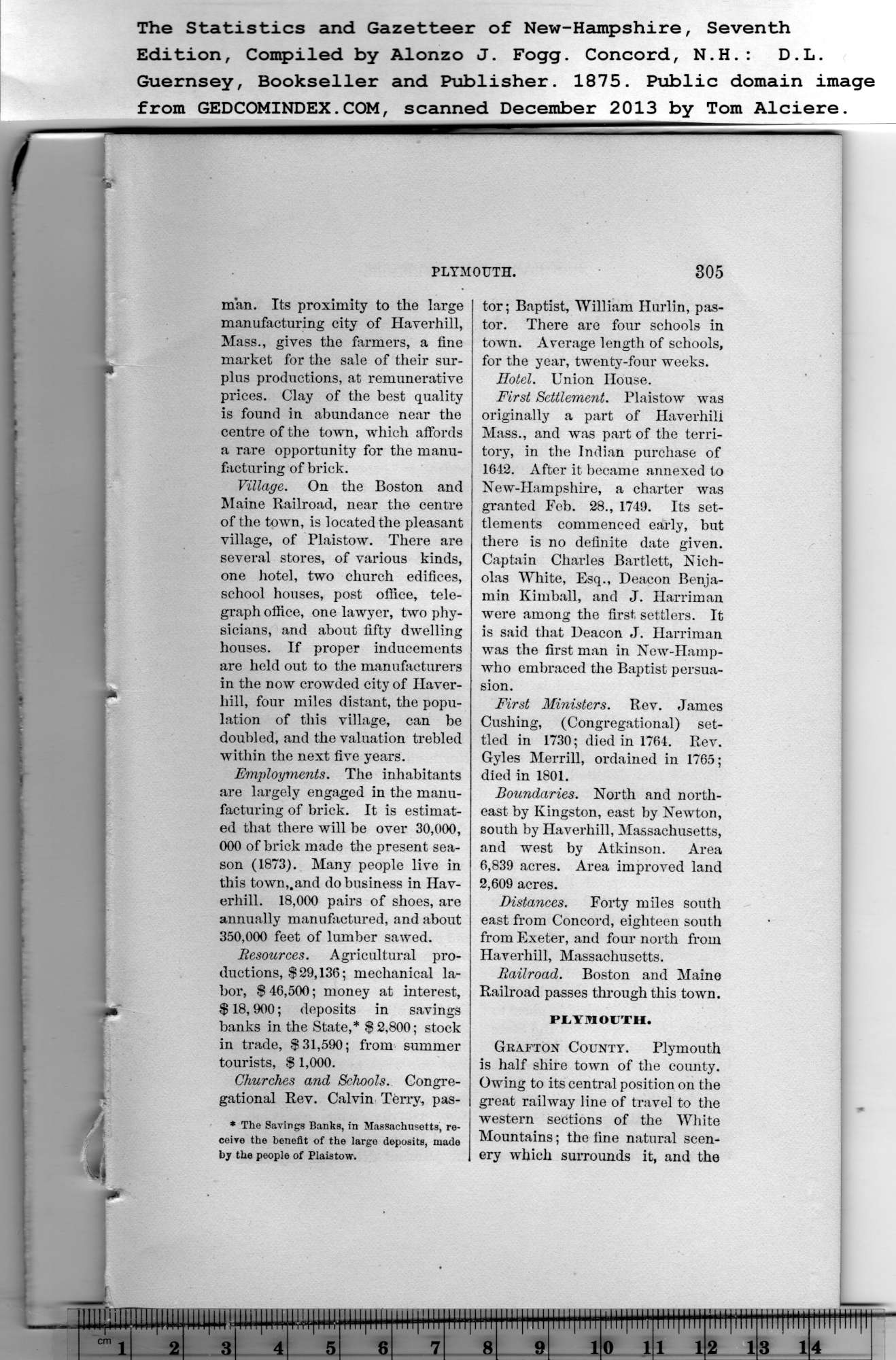|
man. Its proximity to the large
manufacturing city of Haverhill,
Mass., gives the farmers, a fine
market for the sale of their sur-
plus productions, at remunerative
prices. Clay of the best quality
is found in abundance near the
centre of the town, which affords
a rare opportunity for the manu-
facturing of brick.
Village. On the Boston and
Maine Railroad, near the centre
of the town, is located the pleasant
village, of Plaistow. There are
several stores, of various kinds,
one hotel, two church edifices,
school houses, post office, tele-
graph office, one lawyer, two phy-
sicians, and about fifty dwelling
houses. If proper inducements
are held out to the manufacturers
in the now crowded city of Haver-
hill, four miles distant, the popu-
lation of this village, can be
doubled, and the valuation trebled
within the next five years.
Employments. The inhabitants
are largely engaged in the manu-
facturing of brick. It is estimat-
ed that there will be over 30,000,
000 of brick made the present sea-
son (1873). Many people live in
this town,.and do business in Hav-
erhill. 18,000 pairs of shoes, are
annually manufactured, and about
350,000 feet of lumber sawed.
Resources. Agricultural pro-
ductions, $29,136; mechanical la-
bor, $ 46,500; money at interest,
$ 18,900; deposits in savings
banks in the State,* $2,800; stock
in trade, $31,590; from summer
tourists, $ 1,000.
Churches and Schools. Congre-
gational Rev. Calvin Terry, pas-
* The Savings Banks, in Massachusetts, re-
ceive the benefit of the large deposits, made
by the people of Plaistow. |
tor; Baptist, William Hurlin, pas-
tor. There are four schools in
town. Average length of schools,
for the year, twenty-four weeks.
Hotel. Union House.
First Settlement. Plaistow was
originally a part of Ilaverhili
Mass., and was part of the terri-
tory, in the Indian purchase of
1642. After it became annexed to
New-Hampshire, a charter was
granted Feb. 28., 1749. Its set-
tlements commenced early, but
there is no definite date given.
Captain Charles Bartlett, Nich-
olas White, Esq., Deacon Benja-
min Kimball, and J. Harriman
were among the first settlers. It
is said that Deacon J. Harriman
was the first man in Now-IIamp-
who embraced the Baptist persua-
sion.
First Ministers. Rev. James
Cushing, (Congregational) set-
tled in 1730; died in 1764. Rev.
Gyles Merrill, ordained in 1765;
died in 1801.
Boundaries. North and north-
east by Kingston, east by Newton,
south by Haverhill, Massachusetts,
and west by Atkinson. Area
6,839 acres. Area improved land
2,609 acres.
Distances. Forty miles south
east from Concord, eighteen south
from Exeter, and four north from
Haverhill, Massachusetts.
Railroad. Boston and Maine
Railroad passes through this town.
PLYMOUTH.
Gkafton County. Plymouth
is half shire town of the county.
Owing to its central position on the
great railway line of travel to the
western sections of the White
Mountains; the fine natural scen-
ery which surrounds it, and the |
